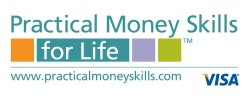17 practical money skills that will set you up for early retirement
Table of Contents
Table of Contents
Buying a home is an exciting and rewarding milestone for many, but it can also be a daunting task. There are many practical money skills that are essential to have when it comes to buying a home, and being able to navigate through the process with ease and confidence can make a big difference in the outcome.
The Pain Points of Buying a Home
Buying a home involves a lot of money, paperwork, and legal obligations, which can be overwhelming for first-time homebuyers. Additionally, many people struggle with saving up for a down payment and finding a mortgage with favorable terms, which can add to the stress of the process. Without practical money skills, homebuyers may find it difficult to stick to a budget and make informed financial decisions, leading to potential financial setbacks down the road.
Answering the Target of Buying a Home
Practical money skills involve developing a budget, understanding mortgages, and knowing how to negotiate with agents and lenders. By having a solid understanding of these skills, homebuyers can set themselves up for success and ensure that they are making informed decisions throughout the home buying process.
Summary of Main Points
In summary, practical money skills are essential when it comes to buying a home. Without the ability to budget, understand mortgages, and negotiate effectively, homebuyers can face potential financial setbacks and roadblocks on the path to homeownership. It is important to develop a solid understanding of these skills in order to navigate the home buying process with ease and confidence.
Developing Practical Money Skills for Homebuying
One practical way to develop the necessary money skills for homebuying is to create a budget and stick to it. This budget should include all financial obligations and expenses, such as mortgage payments, property taxes, and home insurance. By having a clear idea of how much money is coming in and going out, homebuyers can ensure that they are able to meet their financial obligations and avoid potential issues down the road.
 Another important practical money skill is to understand how mortgages work, including interest rates, terms, and fees. By shopping around for different mortgage options and reading the fine print, homebuyers can ensure that they are making informed decisions and choosing a mortgage with favorable terms. It is also important to negotiate with mortgage lenders and real estate agents in order to get the best possible deal.
Another important practical money skill is to understand how mortgages work, including interest rates, terms, and fees. By shopping around for different mortgage options and reading the fine print, homebuyers can ensure that they are making informed decisions and choosing a mortgage with favorable terms. It is also important to negotiate with mortgage lenders and real estate agents in order to get the best possible deal.
Understanding Property Value and Maintenance
Homebuyers should also take the time to understand property values and maintenance. This includes researching neighborhoods and property values, as well as taking into account the cost of ongoing maintenance and repairs.
 #### Finding Resources for Developing Practical Money Skills
#### Finding Resources for Developing Practical Money Skills
There are many resources available for developing practical money skills related to homebuying, including online courses, workshops, and financial counseling services. These resources can provide valuable information and guidance on topics such as budgeting, mortgages, and negotiating with lenders and real estate agents.
Questions and Answers
Q: How much money should I save before buying a home?
A: In general, it is recommended to save up at least 20% of the home’s purchase price for a down payment. However, this can vary depending on individual financial circumstances and the specific property being purchased.
Q: How do I find the best mortgage rate?
A: Shopping around for different mortgage options and comparing interest rates and fees is the best way to find the most favorable mortgage rate. It is also important to have a good credit score and negotiate with lenders.
Q: Are there any financial assistance programs available for first-time homebuyers?
A: Yes, there are many programs available for first-time homebuyers, including grants, low-interest loans, and other financial incentives. It is important to research these programs and see if you qualify.
Q: How do I know if a home is a good investment?
A: Researching the neighborhood and property values, as well as assessing the overall condition and potential for appreciation, can help determine if a home is a good investment.
Conclusion of Practical Money Skills for Buying a Home
Developing practical money skills is essential for homebuyers, and can make a big difference in the outcome of the home buying process. By developing a budget, understanding mortgages, and researching the property and neighborhood, homebuyers can ensure that they are making informed financial decisions and setting themselves up for success.
Gallery
Consumer Action - Practical Money Skills For Life

Photo Credit by: bing.com / money skills practical life consumer action management thursday published 2007 december outreach
Infographic: Practical Money Skills I Wish My Parents Taught Me | Money

Photo Credit by: bing.com / taught
PPT - Practical Money Skills PowerPoint Presentation, Free Download

Photo Credit by: bing.com / practical skills money ppt powerpoint presentation
17 Practical Money Skills That Will Set You Up For Early Retirement

Photo Credit by: bing.com / practical skills money retirement early
Teacher Free Web Resources On Economics | Educational Technology And

Photo Credit by: bing.com / economics resources practical skills money web





